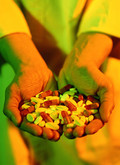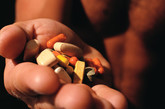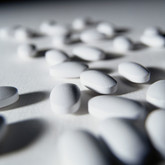Generics/Research
Product recalls increase with increasing generics competition
Generics price competition may lead to relaxed manufacturing standards and ultimately lower quality products, according to a study carried out by researchers from three US universities.
Patient sociodemographics and use of generics
Researchers from the US have found that poorer patients are more likely to use generics [1].
Generic sofosbuvir and daclatasvir bioequivalent to originators
With the aim of eliminating hepatitis C (HCV) by 2030, some originator pharmaceutical companies have granted voluntary licences to generics companies to mass produce the direct-acting antivirals (DAAs) sofosbuvir and daclatasvir at low cost. In order to achieve this, generics makers need to demonstrate bioequivalent pharmacokinetics for their DAAs, compared to the originators. Therefore, researchers carried out a study to determine whether generics of sofosbuvir and daclatasvir had bioequivalent pharmacokinetics to the originators [1].
Generic clopidogrel non-inferior to Plavix in acute coronary syndrome
A team of Canadian researchers have concluded that generic clopidogrel is non-inferior to the originator drug, Plavix (clopidogrel), in the treatment of patients with acute coronary syndrome [1]
Doctors’ perceptions of generics in Guadeloupe and Martinique
Doctors in Guadeloupe and Martinique are not hostile towards generics but still mostly prescribe brand-name drugs due to patient preferences, according to a study analysing the perceptions of doctors towards generics in the French speaking territories [1].
Generics market failures and non-profit manufacturing
Competition usually keeps the price of generics well below that of brand-name drugs. However, when there is little or no competition, generics makers can substantially increase prices, which may lead to drug shortages. One way to address such market failures could be to introduce a non-profit generics maker to the market, according to researchers from Intermountain Healthcare, the Johns Hopkins Carey Business School and the Johns Hopkins Bloomberg School of Public Health [1].
Antitrust activities in the pharmaceutical industry
High prices of prescription drugs have been highlighted as reducing access to essential drugs and have recently gained notoriety and political attention. Authors from Harvard Medical School and the law schools of the Northeastern and Rutgers Universities explain the role of antitrust law in restoring competition and restraining price increases [1].
Encouraging generics could cause high prices
A provision introduced in October 2017 awards eligible drugmakers 180 days of exclusivity to market a generic version of one of a list of 267 medicines for which no generic version currently exists. The provision was introduced to encourage generics of off-patent drugs without generics, however, some believe it could lead to high prices [1].
Trends in use of Lipitor after introduction of generic atorvastatin
Big savings can be made after the introduction of generics, especially when it comes to high volume categories, such as statins. Pfizer’s Lipitor (atorvastatin) was the best-selling drug of all time until it lost its patent protection at the end of June 2011 [1] and a generic version became available in the US in November 2011 [2]. However, the impact of the introduction of generics on use of Lipitor is not known. Therefore, researchers from Duke and Yale Universities analysed trends in use and expenditures associated with Lipitor after generic atorvastatin became available [3].
Switchback rates between generic and brand-name drugs
A study carried out by researchers from Harvard Medical School found a lower rate of switchback when patients were switched to an authorized generic from the brand-name product rather than when they were switched to another generic drug product [1].












